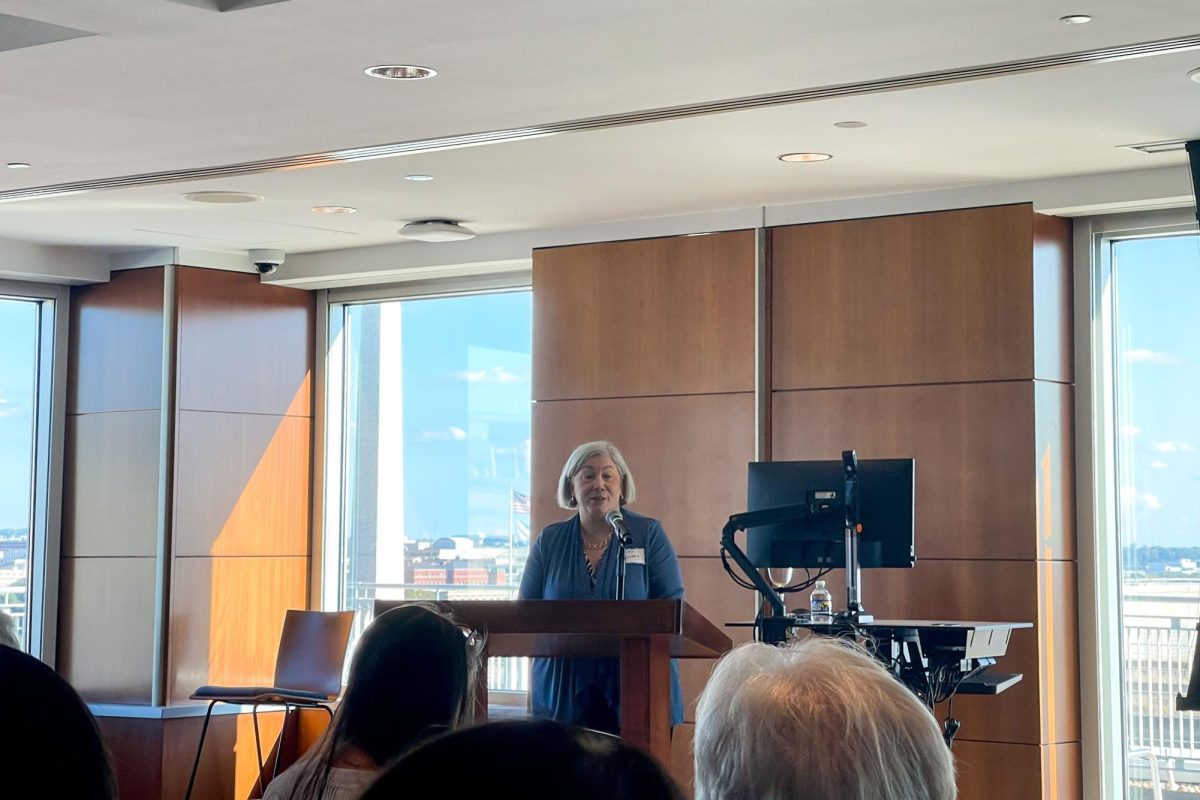University President Ellen Granberg discussed her sociology background at a celebration of the GW Department of Sociology Thursday.
Granberg, who earned a master’s and doctorate degree in sociology from Vanderbilt University and served as a professor of sociology at Clemson University from 2001 to 2018, said her previous research focused on the mental health of children and that accomplished faculty and dedicated students, staff and alumni drive the University’s “robust” sociology department. Joya Misra, the incoming president of the American Sociological Association — a nonprofit organization dedicated to advancing sociology — delivered the keynote address at the event, which was hosted by the Department of Sociology at the Elliott School of International Affairs.
Granberg said much of her research concerned microsociology, the level of analysis in sociology based on face-to-face interactions. She said she can be considered Misra’s “microsocial counterpart.”
“A lot of my focus over the years has been around the impact of microsocial phenomenon on the self image, the identity, the well-being and ultimately the mental health of all of us but particularly of children,” Granberg said. “And this was a very, very thrilling part of my career.”
Granberg said she is “inspired” by what the sociological discipline is capable of and that she is “excited” to see where the department can take it.
Misra is a professor of sociology and public policy at the University of Massachusetts, Amherst. The ASA — whose first president, Lester Ward, was a GW alum — elected Misra to head their association in June 2022.
Misra said GW’s sociology department is “small but mighty” in its impact on students and diversity as a whole. She said she aimed to inspire the audience about the potential of sociology and universities to “do good in the world” through her address.
“I believe that the central mission as universities should be to provide opportunities for our communities and to build communities that allow everyone to experience hope, joy and a sense of justice,” Misra said.
Misra said GW’s Human Services and Social Justice program has been the backbone of “community engaged fellowship” at the University and that the Honey W. Nashman Center for Civic Engagement and Public Service, which supports community service through educational work, is an example of what institutions “should be doing.” She said a public health class that engages autistic young adults and a course for design students to help create graphic design from poems written by incarcerated youth are “inspiring” examples of the Nashman Center’s beneficial work.
“It’s amazing to see how much good is pouring out of GW and into the community, and what a difference it’s making to students here,” Misra said.
She said despite the University’s efforts, scholars haven’t centered community-engaged work in sociology because it hasn’t been recognized or rewarded by the discipline. Misra added that a “fear of overreaching” on social problems that represent centuries of inequalities, like anti-Black racism, can lead to sociologists lacking community engagement.
“Sometimes we have to be willing to make that leap into the unknown, to take from our work not only what it reveals about the inequalities in our world but also what it might suggest about strategies to heal the world,” Misra said.





